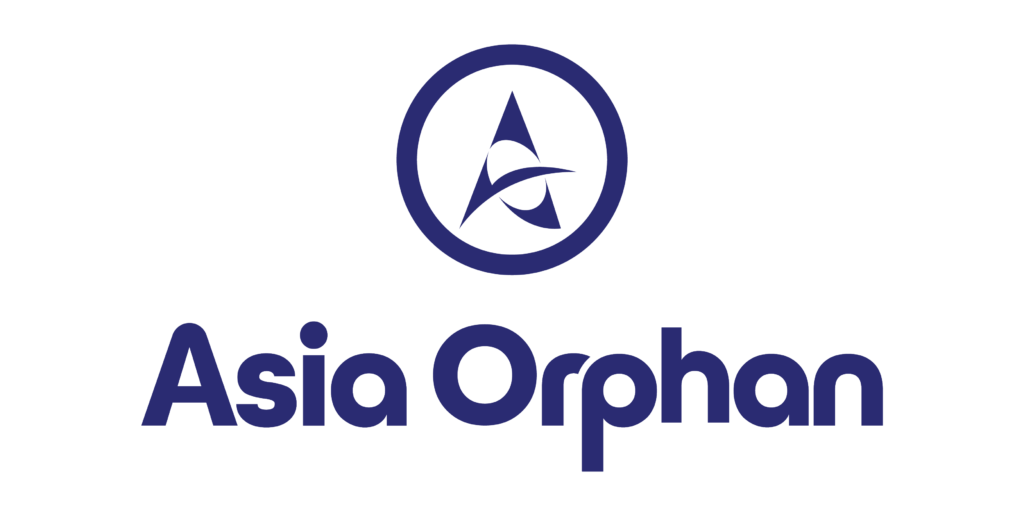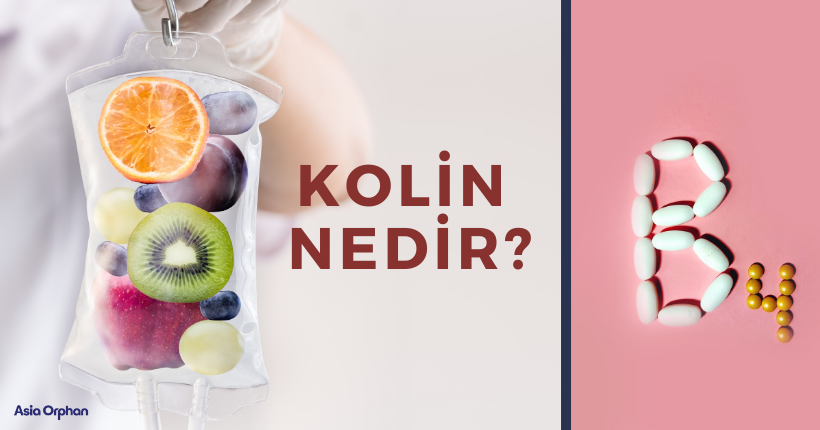What is Choline? What Does It Do? What are the Benefits of Choline?
Choline is an important vitamin B-related nutrient involved in cell membrane structure, intercellular communication, cholesterol transport and metabolism in the liver, DNA synthesis, nervous system, memory, muscle movement, heartbeat and many other areas. The simplest answer to the question of what choline does is that it is an essential micronutrient that plays a particularly important role in brain health and memory. The body can also produce small amounts of choline on its own in the liver, but this is not enough to meet daily needs.
Symptoms of choline deficiency can include; low energy levels and fatigue, memory loss cognitive decline, learning difficulties, muscle aches, nerve damage, mood changes or disorders.
In order to avoid choline deficiency, it has been determined that the daily choline requirement is 425 mg for women and 550 mg for men [1]. It is important to use reliable Choline IV therapies, approved for production and sale, at the appropriate dose and in the procedure recommended by the physician, in order not to negatively affect our health and to eliminate choline deficiency.
The answer to the question “Is choline harmful?” can be given as follows. Taking too much choline can cause vomiting, excessive sweating and salivation, low blood pressure and liver damage [13].
Choline Benefits;
-Helps strengthen brain functions such as thinking and memory [2],
-Helps break down cholesterol [2],
-It is “food” for beneficial gut bacteria [2],
-Gene expression, cell membrane signaling, lipid transport and metabolism have important roles in modulating early brain development [3,4],
-Have a positive effect on memory and cognitive functions [5],
-According to some research, it helps metabolize fats [6],
-Positively affect fetal development and pregnancy outcome [7] and
-May help reduce the risk of cardiovascular diseases. [8]
Foods Containing Choline
Eggs are the best and primary source of choline. One large egg with yolk contains 147 mg of choline, which is more concentrated in egg yolk (680 mg/100 g) than in egg white (1 mg/100 g) [9].
Seafood is a rich source of various nutrients such as choline. Fish such as tuna, salmon and haddock have high choline content and three pieces of smoked salmon contain 187 mg of choline.
Apart from these; chicken, liver, cooked (3 pieces) contains 247 mg choline, while defatted soy flour (1 cup) contains 201 mg choline [10].
What are the Symptoms of Choline Deficiency?
Choline deficiency can cause disorders in many body systems, including the liver, muscle and lymphocytes in humans, as well as the kidney, pancreas and the developing brain and nervous system in animals [11].
It can cause serious medical conditions such as premature birth, cystic fibrosis and hepatosteatosis. Therefore, adequate choline intake is essential for growth and homeostasis [12].
Choline deficiency may also play a role in age-related cognitive decline, including memory loss and Alzheimer’s disease. This is because choline helps maintain neurotransmitters, and as we age, nerve signaling declines and signs of dementia appear.
What is Choline IV Therapy?
IV therapy, or intravenous therapy, delivers fluids, medicines or vitamins directly into the body’s veins. It is the fastest way to deliver blood products, vitamins, medicines or other necessary fluids directly into a person’s circulatory system. IV therapy is given through an intravenous catheter, by injection with a syringe or by infusion (also called “drip”).
Taking choline IV drip is much more effective than taking supplements by mouth as it bypasses the digestive system completely. It delivers the nutrient directly to the cells where it can do the most good. Treatments can vary from person to person and procedure to procedure. It should be used under the supervision of a doctor.
Taking choline IV increases the efficiency more than taking it orally. For those who say which branch should I go to for this application; Traditional and Complementary Medicine Functional physicians, defined as GETAT, perform choline IV applications. The choline IV therapy provides auxiliary support to the treatment due to its rapid effect.
A Review on Choline IV Therapy Application
In a study, the efficacy of choline alfoskerate was investigated in 76 patients (45 males and 31 females aged 21-56 years) with concussion, headache, easy fatigue, nighttime sleep disturbances, daytime sleepiness, anxiety and bad mood. Thirty-nine patients received intravenous choline alfoskerate at a dose of 1000 mg/day for 10 days; the other 37 patients formed the control group.
References
[1] Gıda ve Beslenme Kurulu, Tıp Enstitüsü. Diyet Referans Alımları: Tiamin, Riboflavin, Niasin, Vitamin B-6, Vitamin B012, Pantotenik Asit, Biotin ve Kolin. Washington, D.C.: Ulusal Bilimler Akademisi; 1998. pp. 390-422. [2] S. Sağlık ve İnsan Hizmetleri Bakanlığı. Sağlık Uzmanları için B2 Vitamini Bilgi Formu. https://ods.od.nih.gov/factsheets/Choline-HealthProfessional/ Erişim tarihi 2/8/23. [3] Zeisel SH, Corbin KD. Kolin. İçinde: Erdman JW, Macdonald IA, Zeisel SH, eds.(2012). Beslenmede Güncel Bilgiler. 10th ed. Washington, DC: Wiley-Blackwell; 2012:405-18. [4] Tıp Enstitüsü. (1998). Gıda ve Beslenme Kurulu. Diyet Referans Alımları: Tiamin, Riboflavin, Niasin, Vitamin B6, Folat, Vitamin B12, Pantotenik Asit, Biotin ve Kolin. Washington, DC: National Academy Press. [5] Nurk, E., Refsum, H., Bjelland, I., Drevon, C. A., Tell, G. S., Ueland, P. M., Vollset, S.E., Engedal, K., Nygaard, H.A., Smith, D. A. (2012). Plazma serbest kolin, betain ve bilişsel performans: Hordaland Sağlık Çalışması. British Journal of Nutrition, 109(03), 511-519. [6] Elsawy, G., Abdelrahman, O., & Hamza, A. (2014). Kadın Taekwondo ve Judo Sporcuları Arasında Kolin Takviyesinin Hızlı Kilo Kaybı ve Biyokimyasal Değişkenler Üzerine Etkisi. Journal of Human Kinetics, 40(1), 77-82. [7] Jiang, X., Bar, H. Y., Yan, J., Jones, S., Brannon, P. M., West, A. A., … Caudill, M. A. (2013). Üçüncü Trimesterdeki Hamile Kadınlar Arasında Daha Yüksek Maternal Kolin AlımıDiscover more from Asia Orphan
Subscribe to get the latest posts sent to your email.

